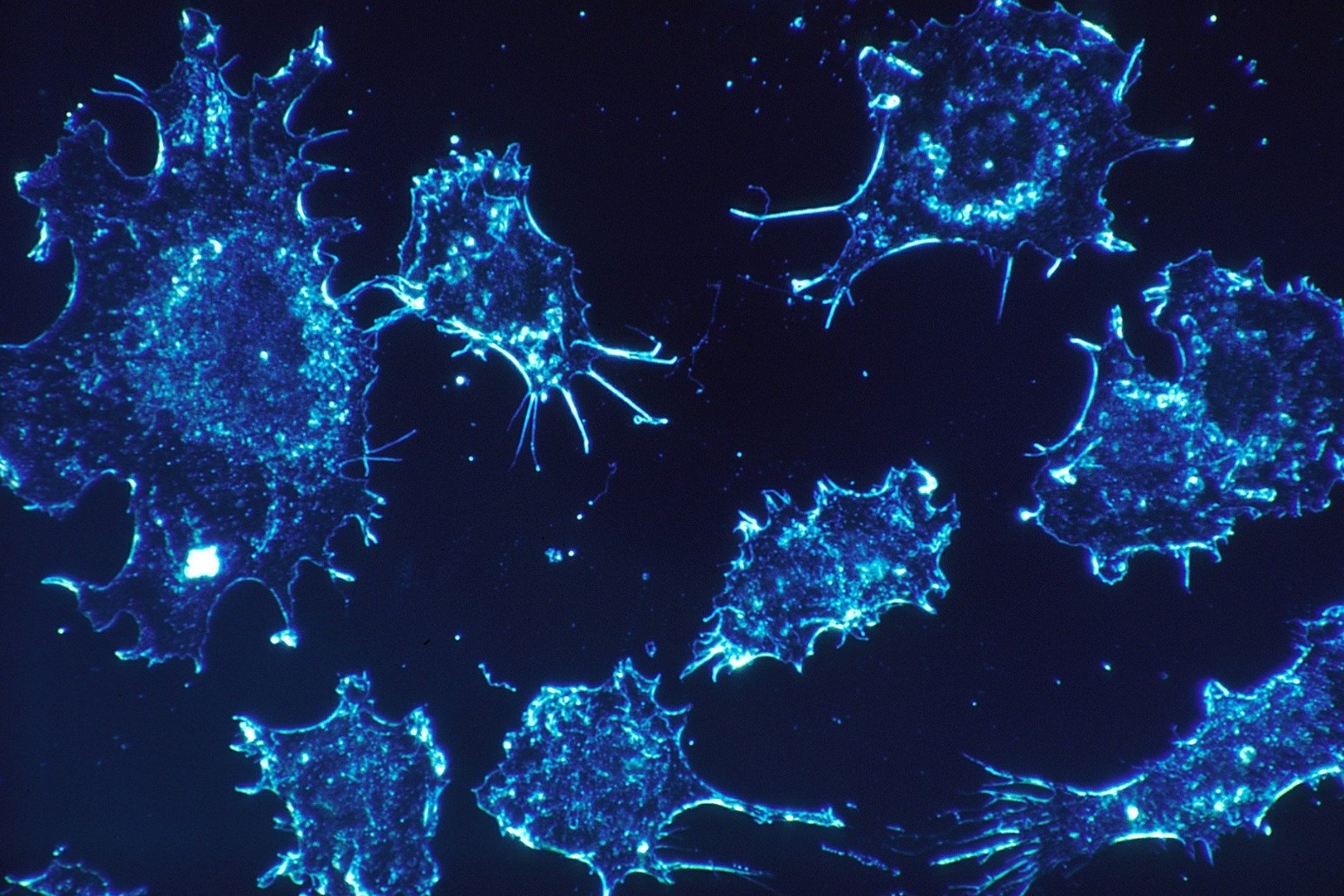
FOCUS ON CANCER 'CURE' OVERSHADOWING PROGRESS MADE IN PROLONGING LIVES
Less than a third of the public believe cancer is a disease that can be managed for years, a survey for cancer experts suggests.
Focusing exclusively on finding a cure is overshadowing "huge" progress already being made allowing those with advanced cancer to live longer, says the Institute of Cancer Research (ICR).
Survival time from cancer has roughly doubled in a decade, and the average patient now lives more than 10 years after being diagnosed.
But just 28% of people believe the disease can be controlled in the long-term, according to an ICR-commissioned YouGov poll of members of the public and cancer patients.
In comparison, 46% of people said they believed heart disease can be managed in the long-term, and 77% said the same for diabetes.
The survey, of 2,103 members of public and 366 patients, also found that only a quarter of people (26%) think progress against cancer is being made.
The ICR is calling for more attention to be given to cancer's ability to resist treatment, so that more people can live longer and survive cancer.
The organisation says that cures are not yet possible for many people with advanced cancer, but personalised treatment is greatly extending their lives.
Only half of people questioned cancer evolution and drug resistance as one of the biggest challenges in cancer research and treatment.
And a third of the public and patient groups both wrongly believed that being given the "all-clear" means the disease has been cured, when it actually means it is undetectable at present but could return.
Barbara Ritchie Lines, from Birmingham, underwent eight years of treatment after being diagnosed with breast cancer in 2005. Her cancer is now undetectable.
She said: "When I first got diagnosed, I was told that I had maybe only 12 months - but it's been 14 years, and here I am.
"I'm so grateful that I now have all this time to spend with my new grandchildren. Being here to hold my seven-week-old grandson means the absolute world to me.
"It is always at the back of your mind that the cancer might come back.
"I try to keep it there so I can carry on living my life, but I hope we continue to see new drugs and treatments to make sure that, no matter what happens with our cancer, the doctors will be ready and able to overcome the disease.
"Cancer doesn't have to be the end - it can be the start of a whole new life."
The ICR is launching the world's first "Darwinian" drug discovery programme within its new cancer centre, aimed at increasing the proportion of patients whose disease can be controlled long-term.
Professor Paul Workman, ICR chief executive, said: "We believe it's vital that we can take the public on this journey with us, by understanding that cancer is a hugely complex and evolving disease, and that we need to move beyond the old, binary 'cure or nothing' thinking to find innovative new ways of treating the disease that can give people a longer and better life.
"The good news is that thanks to research, we are already making great progress against cancer, with diseases that just a few years ago were lethal, now increasingly manageable for patients long term.
"If we can finish off cancer evolution, we will effectively finish cancer."
Published: by Radio NewsHub